Faith
Fire Damage
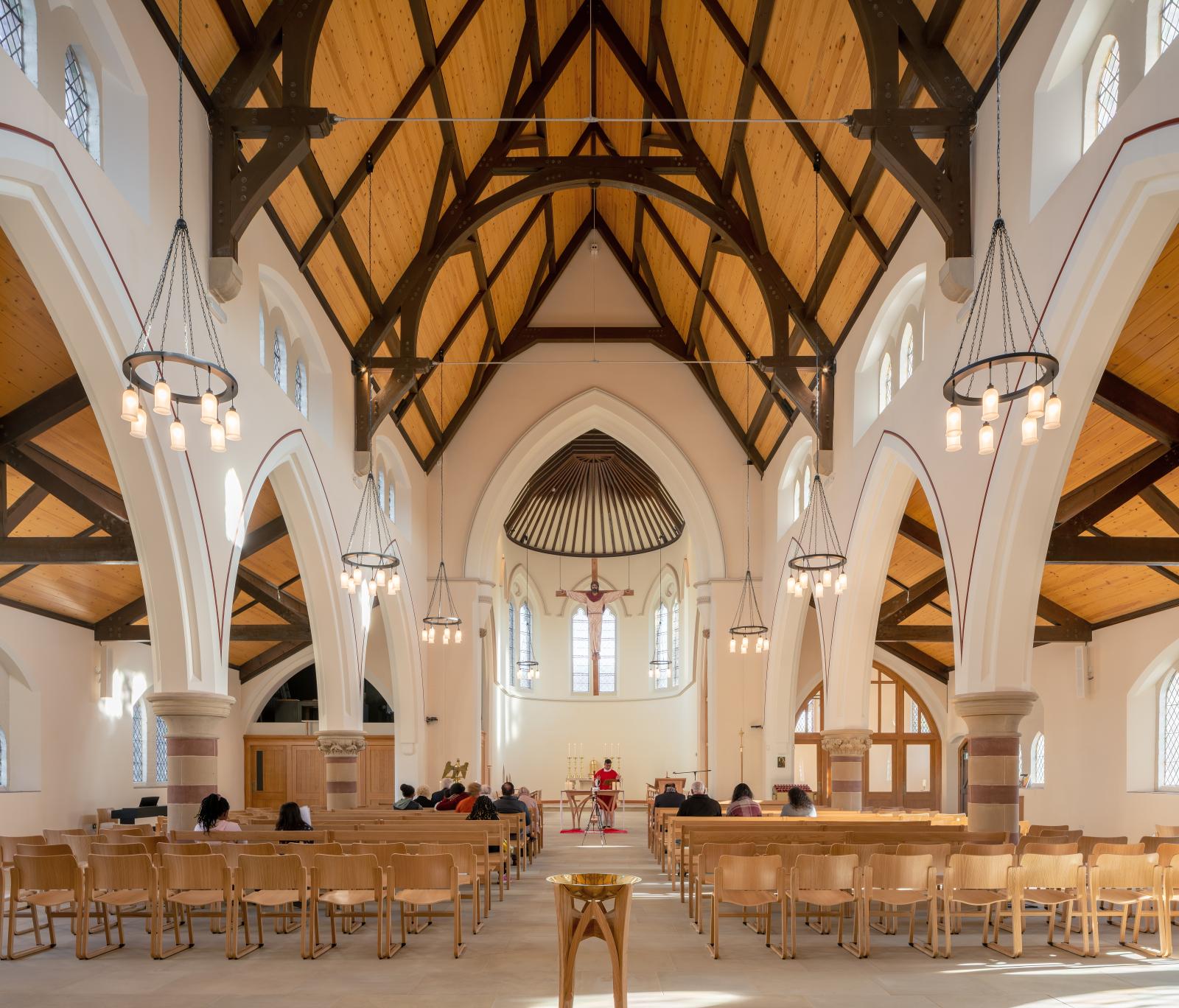
The Church of the Ascension is a Grade II listed building in Lower Broughton, Salford. Built in 1869, the church is one of the few remaining 19th century buildings in the area, due to rapidly growing residential development.
In February 2017, the church was completely devastated by a major fire, leaving only the building shell and arcade walls in place. There were initial fears that the whole building would have to be demolished. Buttress were appointed to lead a £5million restoration project to save the church and rebuild it into a space for both worship and community events.
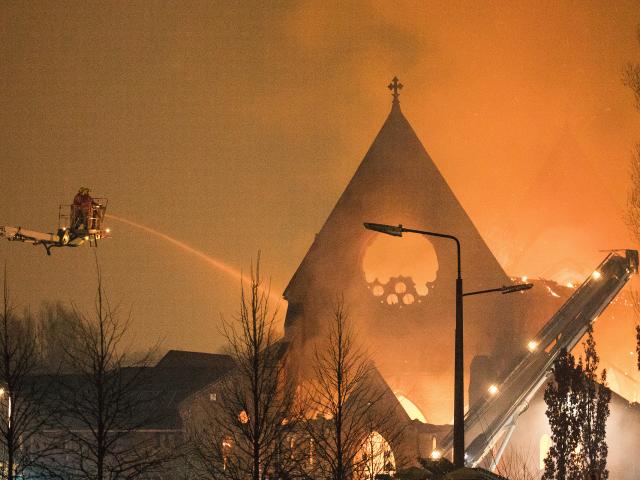
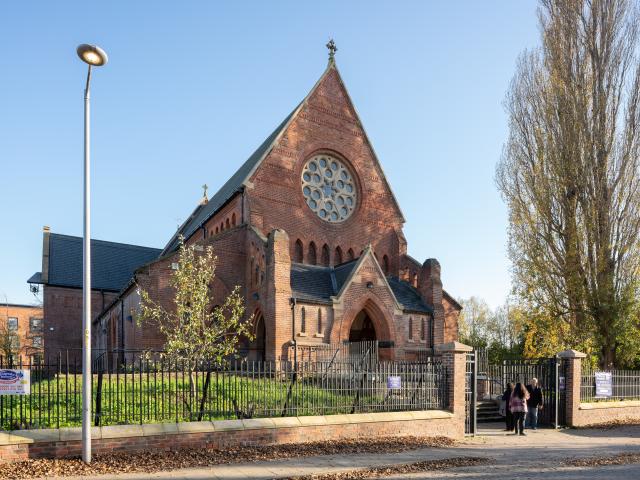
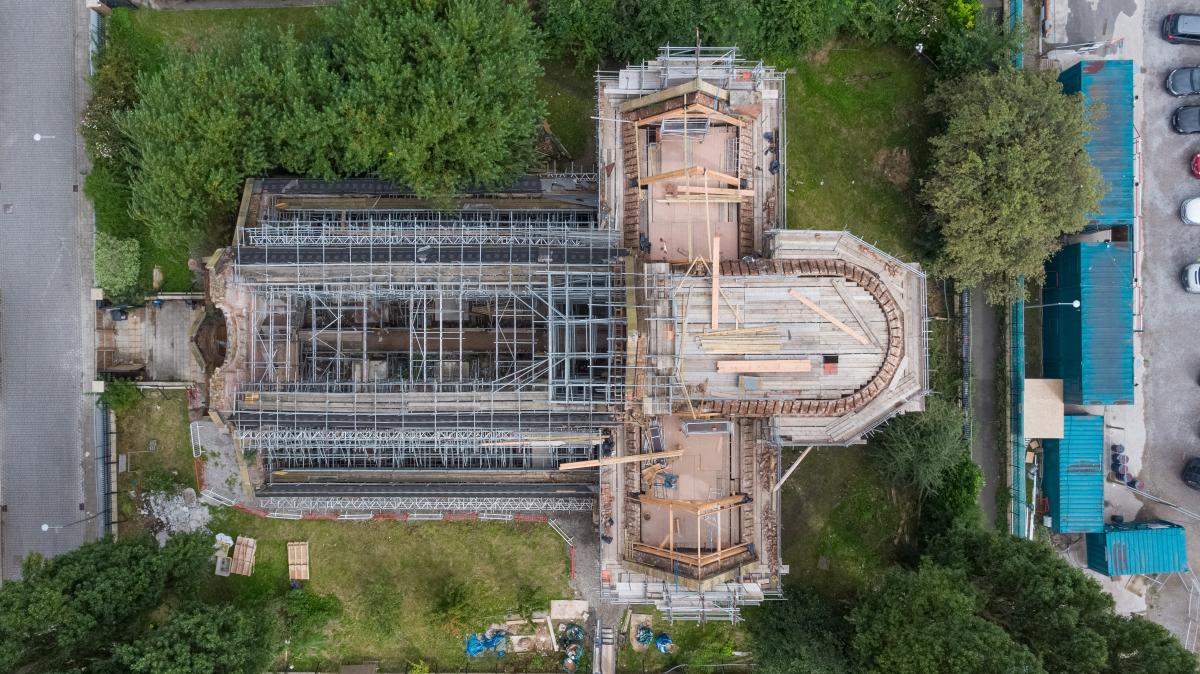
Condition assessment
We were first appointed by engineers Thomasons to carry out an urgent assessment of the remaining structure’s condition. Detailed research was undertaken during this phase, investigating the building’s history to help identify surviving features of architectural, historic and social significance to incorporate into the restoration.
Restoration process
Although the large majority of the interiors, especially the decorative elements, were lost in the fire, the internal and external fabric of the church has been restored to its original state.
The restoration work was undertaken in two phases. Phase one involved the reinstatement of the original envelope and structure. This included the complete reinstatement of the church’s large west gable rose window and the smaller rose windows to the north and south transepts, all of which have been carefully recreated by local stonemasons and stained-glass artists. The new roof structure was rebuilt in a traditional manner with timber trusses similar to the original and insulation to meet current standards.
Phase two
Phase two consisted of the interior fit out, including new finishes and decoration. Internally, a level floor has been introduced throughout the church to improve accessibility and underfloor heating has been added to enhance the internal environment. New toilets have also been designed for fuller accessibility. New timber screens have been introduced to separate spaces, and create a meeting room, vestry, toilets, and a full catering standard kitchen.
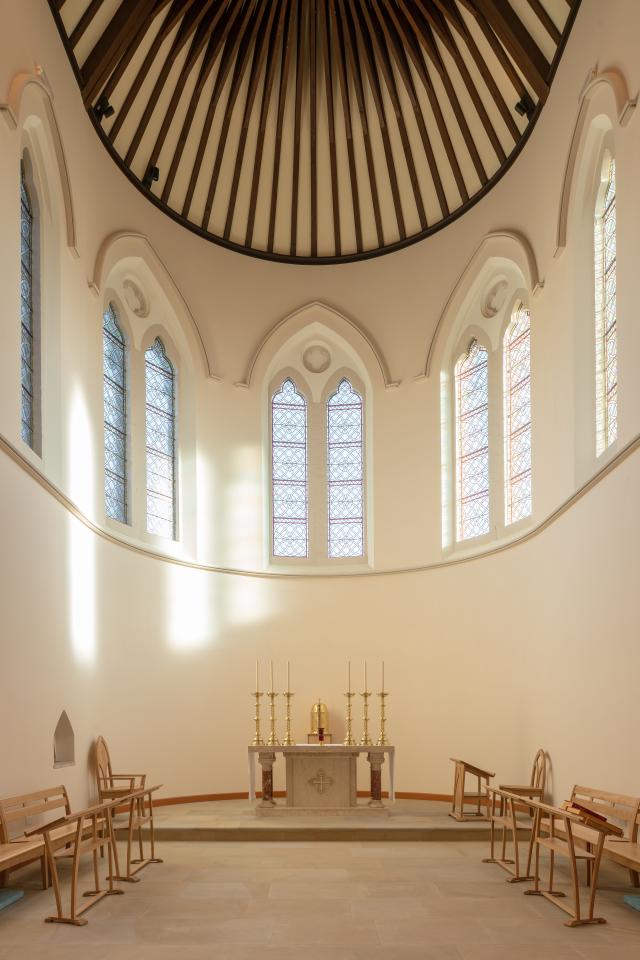
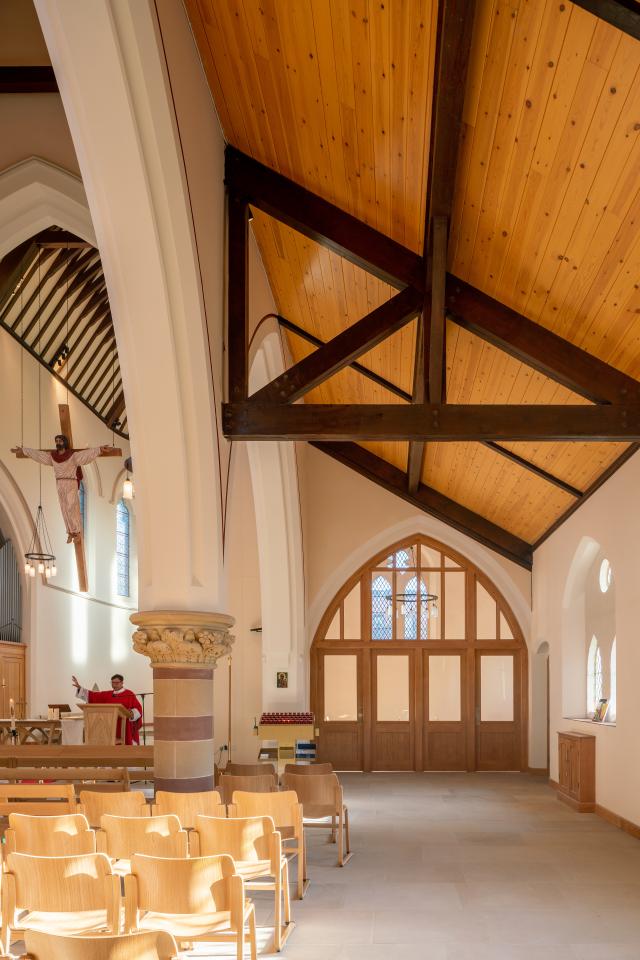
Community
It has been hugely important to restore Church of the Ascension back to a functional building due to its strong community ties. Before the fire, the church was used by the local community for a number of different events – coffee mornings, jumble sales, school services, and more. In 2007, Church of the Ascension was awarded the Royal Town Planning institute prize for Best Practice in community involvement. As it is recognized as an important landmark building in Lower Broughton and is active within the community, we had to ensure the church maintained its symbolic value.
We not only restored the church but also added more functional aspects to the building to serve the community. Flexible worship space has been created, with loose furniture chosen that can be easily moved around or stored away to allow the space to be used for community events. A new office, catering kitchen and meeting room will also allow the church to accommodate larger community events.
The Church of the Ascension has now returned to its place at the centre of the community. Alongside services, local people are now enjoying its café, fairs, classes and music performances which shows the powerful positive transformation a church can have within its community.
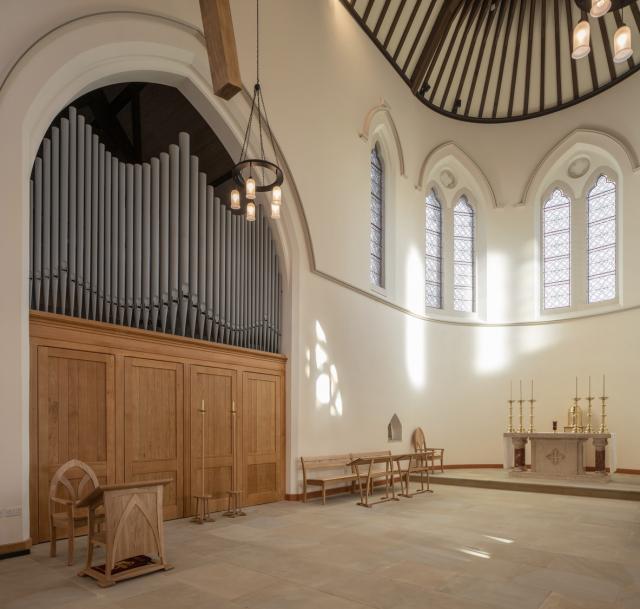
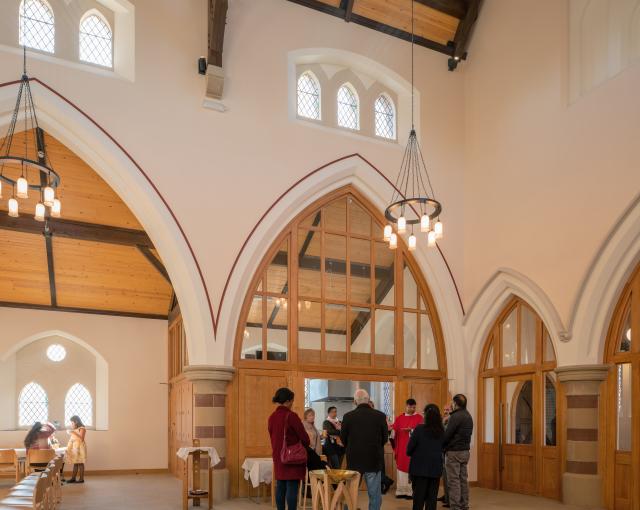
Edward Kepczyk
Edward specialises in the conservation, informed repair, and creative reuse of secular and ecclesiastical buildings, including some of the country’s most significant historic sites.
Courtnay Ives
Courtnay is an architect whose experience includes a range of specialisms with heritage, ecclesiastic and non-secular schemes.
Image credits
© Gavin Stewart
Video Credits
© www.ecclesiastical.com
Awards
Community Built Award 2023 - MSA

